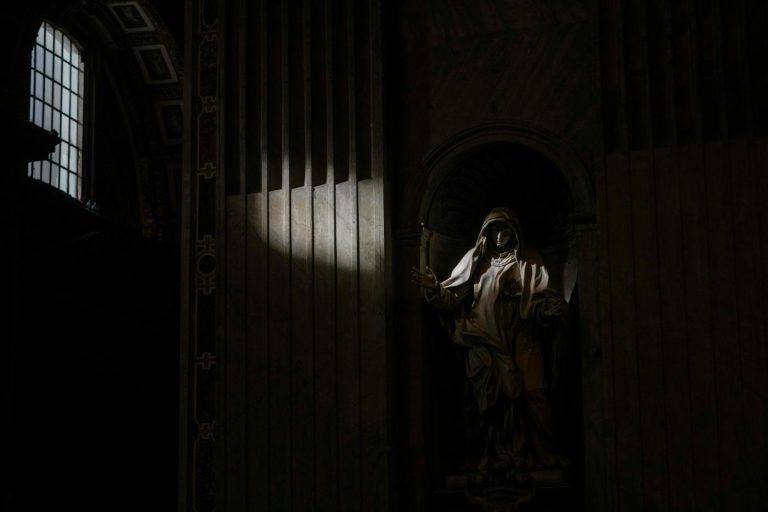SAN FRANCISCO — The Giants, fresh off sweeping the Rockies, remain on the outskirts of the Wild Card race. They need as much going right as possible if they’re going to have any shot at making the postseason.
And Camilo Doval is not right.
His ERA has shot up from 2.93 last year to 4.39 this year. He’s walking nearly six batters per nine innings, one of the worst marks in all of baseball. He maintains his role as San Francisco’s closer, but he might be one or two more blown saves away from a demotion.
“That’s just not who he is,” said pitching coach Bryan Price. “There’s a much better pitcher in there, and we haven’t been able to extract that consistently.”
So, what’s wrong? A simple question. A complex answer, one that involves a multitude of factors.
Doval is at his best when he’s elevating his cutter and executing his slider down in the zone (away to righties, inside to lefties). He did so last season, earning his first All-Star selection in the process. This year, he’s still throwing his slider down in the zone, but his cutter is scattered.
One of the big areas where Camilo Doval has struggled this season is locating his cutter.
In 2023, he did a good job of elevating his cutter and throwing his slider down-and-away to righties. This season, that hasn’t been the case.
(2023 on the left, 2024 on the right) pic.twitter.com/vLiAlOWsNE
— Justice delos Santos (@justdelossantos) July 28, 2024
Opponents have taken advantage of Doval’s inability to consistently locate his cutter and sinker. This season, hitters have a .269 batting average and .519 slugging percentage against Doval’s cutter. Last season, by contrast, opponents had a .175 batting average and .212 slugging percentage against the pitch. Doval’s sinker did not perform all that well last year (.303 batting average, .364 slugging percentage), but the results this season (.304 batting average, .435 slugging percentage) are even worse.
Doval’s difficulty locating his cutter and sinker appears to be reflected in how often he’s throwing those pitches. In 2023, Doval had a pretty uniform pitch mix, using the slider (36.2% usage), cutter (33.8%) and sinker (30%) almost equally. This July, by contrast, Doval has heavily relied on his slider (60.8%) while reducing his cutter (27.2%) and sinker (12%) usage.
“For a pitcher, we talk a lot about the value of the elevated fastball,” Price said. “He has a special one. That execution hasn’t been as elite as it’s been in the past and getting the ball to the bottom of the zone when he’s trying to go to the bottom. A lot of those pitches have ended up around the thigh area, and that’s where he’s vulnerable.”
There’s no singular definitive reason as to why Doval is not executing, but there is some stuff going on under the hood.
For one, Doval’s extension — how close a pitcher’s release point is to home plate — is a tad shorter. In 2023, he was extending 6.7 feet off the rubber. In 2024, he’s down to 6.4 feet.
“(The coaching staff) told me that I’m not stretching as long, that I’m taking that step very short,” Doval said through team interpreter Erwin Higueros. “But the problem with me is that I feel very comfortable with it, so then, they just left me alone.”
That shorter extension, in turn, could be altering his vertical release point, which is noticeably higher. In 2022, Doval had an average vertical release point of 5.31 feet off the ground. In 2023, it was 5.4 feet. In 2024, it is 5.49 feet.
Part of Doval’s struggles could stem from his vertical release point, which has shot up across the board compared to 2022 and 2023. pic.twitter.com/rumQZrKlrW
— Justice delos Santos (@justdelossantos) July 28, 2024
Why is vertical release point important? Most pitchers, due to gravity, throw the ball at a downwards angle. Most hitters, by contrast, swing at an upwards angle. Sidearmers and submariners have an advantage because the angle of their deliveries align less with hitters’ swing paths. With Doval’s release point creeping higher, he loses some of that advantage.
Here are two clips (courtesy of Baseball Savant). The first is from July 14, 2022 when Doval releases a pitch at a vertical release angle of 5.00 feet, one of the lowest of his career.
The second is from June 28, 2024, when Doval releases a pitch at a vertical release angle of 5.80 feet, one of the highest of his career.
When asked about the shorter extension and higher vertical release point, Doval expressed that he believes he’s repeating the same motion all the time.
Related Articles
Taylor Ward’s grand slam caps Angels’ rally to prevent an A’s sweep
After sweeping Rockies, do SF Giants buy, sell or stand pat at MLB trade deadline?
Alex Cobb suffers another setback, hopes SF Giants keep roster intact at trade deadline
Blake Snell records career-high 15 strikeouts as SF Giants sweep doubleheader
SF Giants’ Tyler Fitzgerald continues ‘weird’ stretch with two homers in big win
“Sometimes, it varies between games,” Doval said. “I bring it up, I bring it down. I don’t realize that’s what I’m doing.”
Added Price: “If we were able to go back and look at pitchers from the very beginning to present day, there’s always going to be parts and deliveries that are going to be inconsistent, whether it’s from one season to the next without there being a difference in productivity. As well as there being times where guys get outside their deliveries and there is an effect.”
The biggest impact of an inconsistent release point is the how Doval’s pitches move. If Doval is releasing the ball differently, then his pitches appear to be moving differently as a result.
In 2023, Doval’s cutter averaged 7.7 inches of horizontal break, while his sinker had 25.5 inches of vertical drop.
In 2024, Doval’s cutter is averaging 6.9 inches of horizontal break, while his sinker has 23.9 inches of vertical drop.
Doval’s slider is actually moving more — 4.2 inches of total movement in 2023, 6.1 inches in 2024 — but that pitch loses effectiveness if hitters can zero in on his cutter.
“The things that we may see analytically or statistically may, at times, give us a blueprint on what’s going wrong. But it’s not always a physical thing,” Price said. “Sometimes, it’s a mental stressor. Sometimes it’s an overthrow. These guys may hit a point in time where there’s fatigue, there becomes an increased effort in the delivery, and that gets things sideways.”
Doval still has the tools to be an effective closer. For all the evolutions this game endures, throwing hard will never go out of style. But with the Giants two-thirds of the way through the season, Doval is running out of time to find that version of himself.
(All stats aside from ERA are as of Sunday morning)












